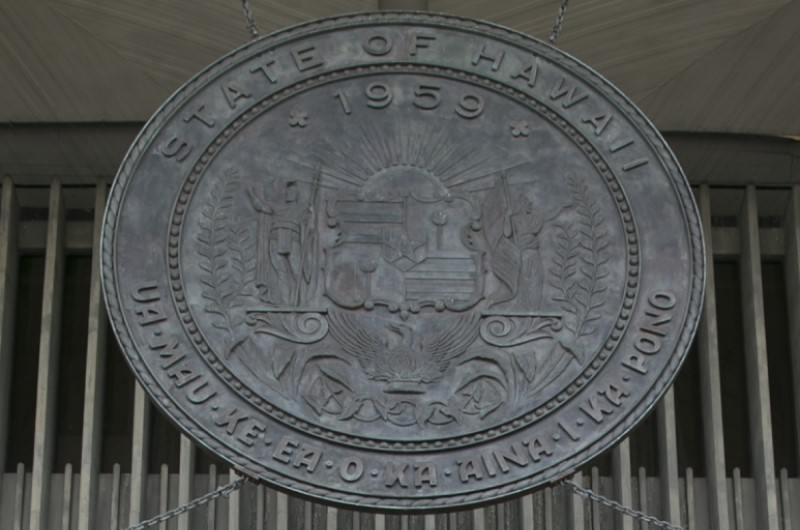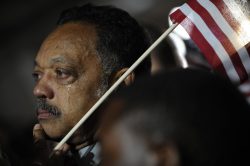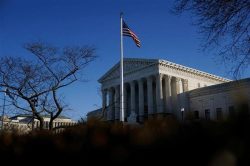
The Hawaii State Capitol in Honolulu, Hawaii October 27, 2013.
11:46 JST, August 15, 2022
Hawaii Lt. Gov. Josh Green was projected to win the Democratic nomination for governor and will face Republican former lieutenant governor Duke Aiona in the race to succeed Democratic Gov. David Ige, who’s ending his second term with low approval ratings.
The Associated Press on Saturday also said former state senator Jill Tokuda was projected to win the Democratic nomination in the open 2nd Congressional District race. The Democratic nominees will begin the general election as early favorites in the blue state.
Green ran for the Democratic nomination against former Hawaii first lady Vicky Cayetano and Rep. Kaiali’i Kahele. Four other Democrats were on the ballot, but Green consistently led in polls leading up to the primary. A medical doctor, Green became the public face of Hawaii’s aggressive response to the coronavirus pandemic, including a long-running requirement that travelers to the state provide negative tests or proof of vaccination.
“I’ve become like a part of the family for most of the state,” Green, 52, told The Washington Post before his campaign launch in February. Cayetano, 66, got into the race last summer, and Kahele, 48, abandoned his safe House seat in May after a single term to run for governor, focusing on campaign finance reform.
In the campaign’s final weeks, Cayetano and Kahele went negative against Green, holding a joint news conference to demand more transparency of his personal finances. In May, a super PAC opposing Green began running ads about his medical credentials, pointing out that he isn’t “board certified,” though certification isn’t required to practice medicine in Hawaii.
The attacks did little to slow down Green. In debates and TV ads, he called his opponents desperate and promised to build more housing to tackle soaring costs and reduce homelessness.
National Republicans have not targeted the race, after investing in Aiona’s 2014 campaign, only to see him lose, to Ige, by more than 12 points. Aiona, 67, entered this year’s race right before the filing deadline, and has led in polls but raised less than $24,000 for his comeback bid – about a tenth as much as retired MMA fighter BJ Penn, 43, his leading rival for the nomination.
Green has raised nearly $1.5 million, and David Turner, a spokesman for the Democratic Governors Association, said that the party sees the Hawaii race as “safe.” The Republican Governors Association did not respond to a request for comment.
The final weeks of the 2nd Congressional District primary transformed into an expensive battle between Tokuda, 46, a liberal backed by the Congressional Progressive Caucus, and state Rep. Patrick Branco, 35, who shares most of her positions and has the support of the Congressional Hispanic Caucus.
Both candidates support an assault weapons ban, Medicare-for-all legislation and codifying Roe v. Wade. Few policy differences emerged in the three months since Kahele decided to abandon a safely Democratic seat that President Joe Biden carried by 30 points. But last-minute spending from Web3 Forward, a super PAC funded by cryptocurrency investors, attacked Tokuda for winning a National Rifle Association endorsement in a previous race.
“All of these hit pieces that have been out against me, quite frankly, I’ve been devastated by them,” Tokuda said in a debate this month, denouncing the role played by “dark money from the mainland.”
The 2nd Congressional District covers most of Hawaii’s territory, outside of populous Oahu. In the Honolulu-based 1st Congressional District, Rep. Ed Case defeated Sergio Alcubilla in the Democratic primary, the AP projected. Alcubilla is an activist and nonprofit director who entered the race after Case, 69, joined other centrist Democrats in demanding a vote on last year’s bipartisan infrastructure bill before action on the party’s social spending and climate package.
The 1st Congressional District, which backed Biden by 29 points in 2020, was the most Democratic seat represented by any member who demanded that infrastructure spending be separated from the “Build Back Better” bill. The latter was stalled for months until a revamped version of it was restored in the Inflation Reduction Act. Some unions and liberal groups have endorsed Alcubilla, 43, who spent a bit more than $100,000 on his primary while Case spent close to $500,000.
Both House seats are rated as safely Democratic in November by the Cook Political Report. Former congressman Charles Djou, the last Republican elected to Congress from Hawaii, left the GOP in 2018 and endorsed Biden for president in 2020.
Democratic Sen. Brian Schatz also easily won his primary, the AP projected, and will begin as a heavy favorite to retain his seat in November. Hawaii elections are conducted via ballots mailed to voters. For the primary, the deadline for ballots to be received was 7 p.m. local time on Saturday.
Top Articles in News Services
-

Survey Shows False Election Info Perceived as True
-

Prudential Life Expected to Face Inspection over Fraud
-

Hong Kong Ex-Publisher Jimmy Lai’s Sentence Raises International Outcry as China Defends It
-

Japan’s Nikkei Stock Average Touches 58,000 as Yen, Jgbs Rally on Election Fallout (UPDATE 1)
-

Trump Names Former Federal Reserve Governor Warsh as the Next Fed Chair, Replacing Powell
JN ACCESS RANKING
-

Japan PM Takaichi’s Cabinet Resigns en Masse
-

Japan Institute to Use Domestic Commercial Optical Lattice Clock to Set Japan Standard Time
-

Israeli Ambassador to Japan Speaks about Japan’s Role in the Reconstruction of Gaza
-

Man Infected with Measles Reportedly Dined at Restaurant in Tokyo Station
-

Videos Plagiarized, Reposted with False Subtitles Claiming ‘Ryukyu Belongs to China’; Anti-China False Information Also Posted in Japan

























